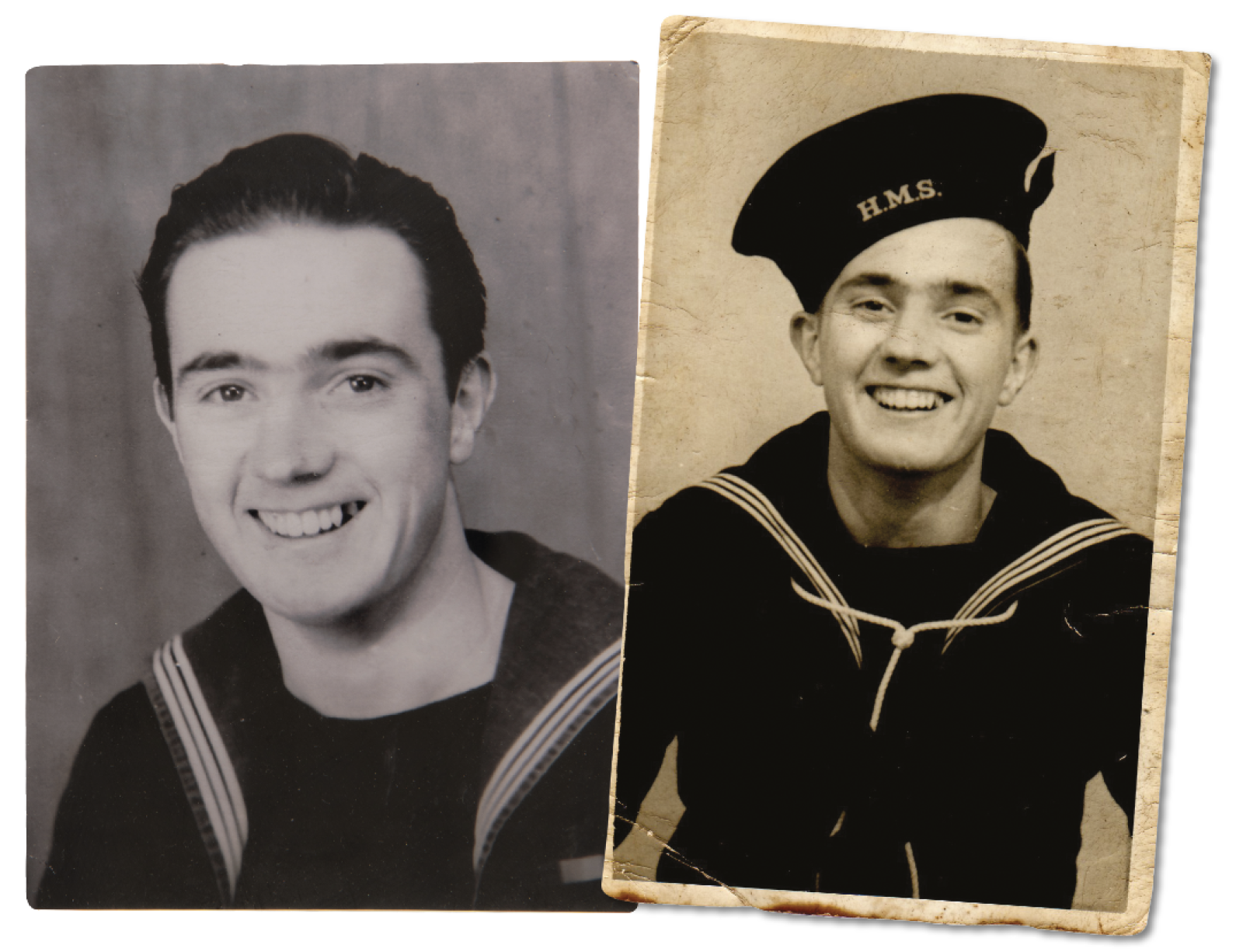Bob Bedford was well known in Henfield. After he retired to the village he was a regular spectator at the football club and he took on much of the maintenance of the cricket pavilion. He was also the unofficial leader of the Monday walking group. Less well known, however, was his military past.
Bob was conscripted into the Royal Navy in 1943 and on 6 June 1944 he was one of many who sailed across the channel to take part in the D-Day landings. Before he died in 2016, Bob spoke in depth of his D Day experiences with his son Paul, who shares them with us here.
“Dad’s Tank Landing Craft was in the vanguard of the boats landing on Juno beach with elements of Canadian Armoured units. His job was that of ‘Wireman’ (or electrician as it would be now known) and his responsibility was to lower the landing ramp of the craft once they had landed on the beach to enable the armoured units to get onto the beach and “get into the fight”.
On the ridge about 20 feet above the beach was a German machine gun nest and from its elevated position it began firing on the craft as it landed. Dad had to move forward from his position under cover at the rear of the vessel to where the ramp control switch gear was housed in a locker adjacent to the ramp. He described the bullets ricocheting around the craft and pinging off the armoured vehicles as he moved forward but he managed to avoid getting hit. Once he opened the metal door of the locker to access the switch controls he was able to take cover behind it and lower the landing ramp. As the armoured vehicles began to roll off the craft onto the beach, the German machine gunners leapt up from their position and all surrendered.
However Dad and his shipmates were not out of danger yet as German Artillery were firing along the beach and on either side of their landing craft with the shells “bracketing” the craft as the German gunners “zeroed in”. He described the Skipper of their boat as a “keen type” who was determined to be “on time and on target”. On their run in to the beach the Skipper was literally at full speed when they hit the beach in order to be in an optimum position to off load the armoured vehicles. As the last vehicle was unloaded they tried to winch themselves off the beach but the steel cable attached to the anchor parted and they were left stranded on the beach with no way of getting off and still under German fire.
Crew from another landing craft in the same flotilla saw the predicament of Dad’s boat and came back to shore to tow them off the beach until they were able to float, where both boats made a hasty retreat. Historians have revealed that a large number of men were killed or wounded by German gunfire when they were close to the beach, yet Dad’s craft had been a “beached sitting duck” and yet had astonishingly survived, as had the other craft that came to their rescue – a miracle on D Day?
Dad didn’t tell me this story until he was in his later years when he started to talk more about his experiences. I took him back to Normandy on an organised coach tour with other veterans and their carers. With typical British reserve, when the journey started, none of the veterans were talking to each other. However eventually they began to talk amongst themselves, strangers yet ‘brothers in arms’. Those accompanying the veterans remained quiet, listening to the “Old Boys” recount their experiences, in awe of what these men had been through. On the journey there was a screening of the film ‘Saving Private Ryan’. During the screening no one spoke and when the film finished there was complete silence for a few minutes before one veteran spoke up and said with typically British understatement: “It was a bit like that wasn’t it?” to which there was a murmur of consensus: “Yes, it was like that.”
I have never forgotten this.
Paul Bedford
